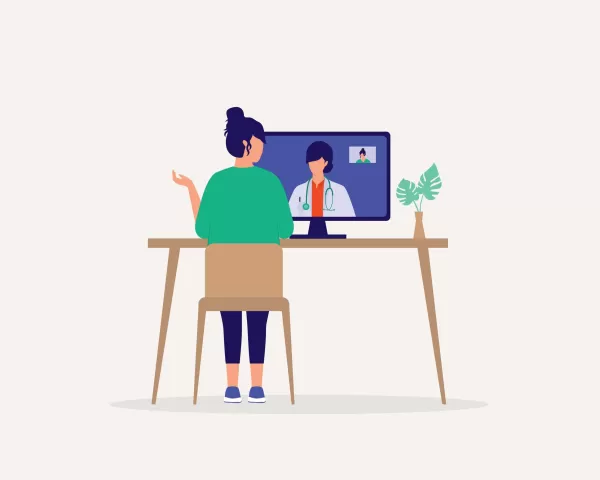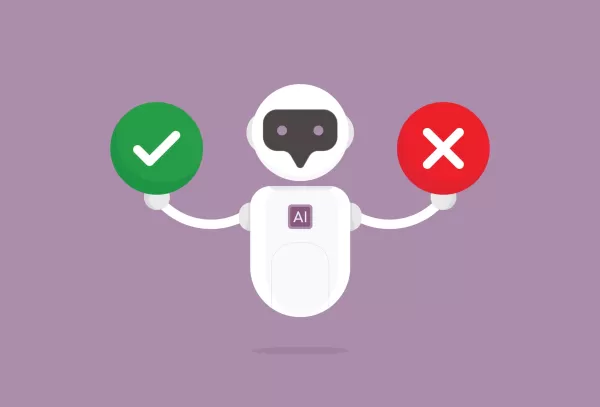Study Reveals Challenges in Obtaining Reliable Health Advice From Chatbots

As healthcare systems struggle with extended wait times and escalating costs, a growing number of patients are experimenting with AI chatbots like ChatGPT for preliminary medical advice. Recent data shows approximately 17% of U.S. adults consult these tools for health information each month. However, new research suggests this emerging practice carries significant risks, particularly when users fail to provide adequate context or misinterpret the AI's responses.
The Oxford-led study exposed critical limitations in how effectively people use conversational AI for medical self-assessment. The research team worked with 1,300 UK participants, presenting them with physician-developed medical scenarios. Participants attempted diagnosis using either AI assistants or conventional methods like internet searches, with concerning results across multiple AI platforms.
"We observed a fundamental communication disconnect in both directions," explained Adam Mahdi, the study's co-author from Oxford Internet Institute. "The AI users demonstrated no better decision-making capabilities than those employing traditional approaches - and in some cases performed worse."
The study tested three leading AI models: OpenAI's GPT-4o (powering ChatGPT), Cohere's Command R+, and Meta's Llama 3. The findings revealed two troubling patterns:
- Participants using AI tools were less successful at identifying relevant health conditions
- AI interactions led to dangerous underestimation of condition severity
Mahdi noted significant issues with input quality and output interpretation: "Users often omitted crucial medical details when formulating queries, while the AI responses frequently blended accurate advice with problematic suggestions." This combination created particularly hazardous scenarios where users might make inappropriate healthcare decisions.
Industry Push vs. Medical Realities
These findings emerge as major tech companies aggressively develop health-focused AI applications:
- Apple is reportedly creating a wellness advisor for exercise and sleep guidance
- Amazon is analyzing medical records for social health indicators
- Microsoft is developing AI systems to prioritize patient communications
However, the medical community remains cautious about deploying these technologies in clinical settings. The American Medical Association explicitly cautions physicians against using consumer chatbots for decision support, a warning echoed by AI developers themselves. Open AI's usage policies specifically prohibit employing its models for diagnostic purposes.
"We strongly advise people to consult verified medical sources rather than chatbot outputs for healthcare decisions," Mahdi emphasized. "Before wide deployment, these systems need rigorous real-world testing comparable to pharmaceutical trials."
Conclusion
While AI chatbots offer intriguing possibilities for making healthcare more accessible, this research highlights substantial risks in current implementations. As the technology evolves, developers must address critical gaps in reliability, while users should approach AI medical advice with appropriate skepticism.
Related article
 AI Data Centers May Cost $200B by 2030, Strain Power Grids
AI training and operation data centers could soon house millions of chips, cost hundreds of billions, and demand power equivalent to a major city’s grid if trends persist.A new study from Georgetown,
AI Data Centers May Cost $200B by 2030, Strain Power Grids
AI training and operation data centers could soon house millions of chips, cost hundreds of billions, and demand power equivalent to a major city’s grid if trends persist.A new study from Georgetown,
 Study Reveals Concise AI Responses May Increase Hallucinations
Instructing AI chatbots to provide brief answers may lead to more frequent hallucinations, a new study suggests.A recent study by Giskard, a Paris-based AI evaluation firm, explored how prompt phrasin
Study Reveals Concise AI Responses May Increase Hallucinations
Instructing AI chatbots to provide brief answers may lead to more frequent hallucinations, a new study suggests.A recent study by Giskard, a Paris-based AI evaluation firm, explored how prompt phrasin
 AI-Powered Solutions Could Significantly Reduce Global Carbon Emissions
A recent study by the London School of Economics and Systemiq reveals that artificial intelligence could substantially lower global carbon emissions without sacrificing modern conveniences, positionin
Comments (0)
0/200
AI-Powered Solutions Could Significantly Reduce Global Carbon Emissions
A recent study by the London School of Economics and Systemiq reveals that artificial intelligence could substantially lower global carbon emissions without sacrificing modern conveniences, positionin
Comments (0)
0/200

As healthcare systems struggle with extended wait times and escalating costs, a growing number of patients are experimenting with AI chatbots like ChatGPT for preliminary medical advice. Recent data shows approximately 17% of U.S. adults consult these tools for health information each month. However, new research suggests this emerging practice carries significant risks, particularly when users fail to provide adequate context or misinterpret the AI's responses.
The Oxford-led study exposed critical limitations in how effectively people use conversational AI for medical self-assessment. The research team worked with 1,300 UK participants, presenting them with physician-developed medical scenarios. Participants attempted diagnosis using either AI assistants or conventional methods like internet searches, with concerning results across multiple AI platforms.
"We observed a fundamental communication disconnect in both directions," explained Adam Mahdi, the study's co-author from Oxford Internet Institute. "The AI users demonstrated no better decision-making capabilities than those employing traditional approaches - and in some cases performed worse."
The study tested three leading AI models: OpenAI's GPT-4o (powering ChatGPT), Cohere's Command R+, and Meta's Llama 3. The findings revealed two troubling patterns:
- Participants using AI tools were less successful at identifying relevant health conditions
- AI interactions led to dangerous underestimation of condition severity
Mahdi noted significant issues with input quality and output interpretation: "Users often omitted crucial medical details when formulating queries, while the AI responses frequently blended accurate advice with problematic suggestions." This combination created particularly hazardous scenarios where users might make inappropriate healthcare decisions.
Industry Push vs. Medical Realities
These findings emerge as major tech companies aggressively develop health-focused AI applications:
- Apple is reportedly creating a wellness advisor for exercise and sleep guidance
- Amazon is analyzing medical records for social health indicators
- Microsoft is developing AI systems to prioritize patient communications
However, the medical community remains cautious about deploying these technologies in clinical settings. The American Medical Association explicitly cautions physicians against using consumer chatbots for decision support, a warning echoed by AI developers themselves. Open AI's usage policies specifically prohibit employing its models for diagnostic purposes.
"We strongly advise people to consult verified medical sources rather than chatbot outputs for healthcare decisions," Mahdi emphasized. "Before wide deployment, these systems need rigorous real-world testing comparable to pharmaceutical trials."
Conclusion
While AI chatbots offer intriguing possibilities for making healthcare more accessible, this research highlights substantial risks in current implementations. As the technology evolves, developers must address critical gaps in reliability, while users should approach AI medical advice with appropriate skepticism.
 AI Data Centers May Cost $200B by 2030, Strain Power Grids
AI training and operation data centers could soon house millions of chips, cost hundreds of billions, and demand power equivalent to a major city’s grid if trends persist.A new study from Georgetown,
AI Data Centers May Cost $200B by 2030, Strain Power Grids
AI training and operation data centers could soon house millions of chips, cost hundreds of billions, and demand power equivalent to a major city’s grid if trends persist.A new study from Georgetown,
 Study Reveals Concise AI Responses May Increase Hallucinations
Instructing AI chatbots to provide brief answers may lead to more frequent hallucinations, a new study suggests.A recent study by Giskard, a Paris-based AI evaluation firm, explored how prompt phrasin
Study Reveals Concise AI Responses May Increase Hallucinations
Instructing AI chatbots to provide brief answers may lead to more frequent hallucinations, a new study suggests.A recent study by Giskard, a Paris-based AI evaluation firm, explored how prompt phrasin





























